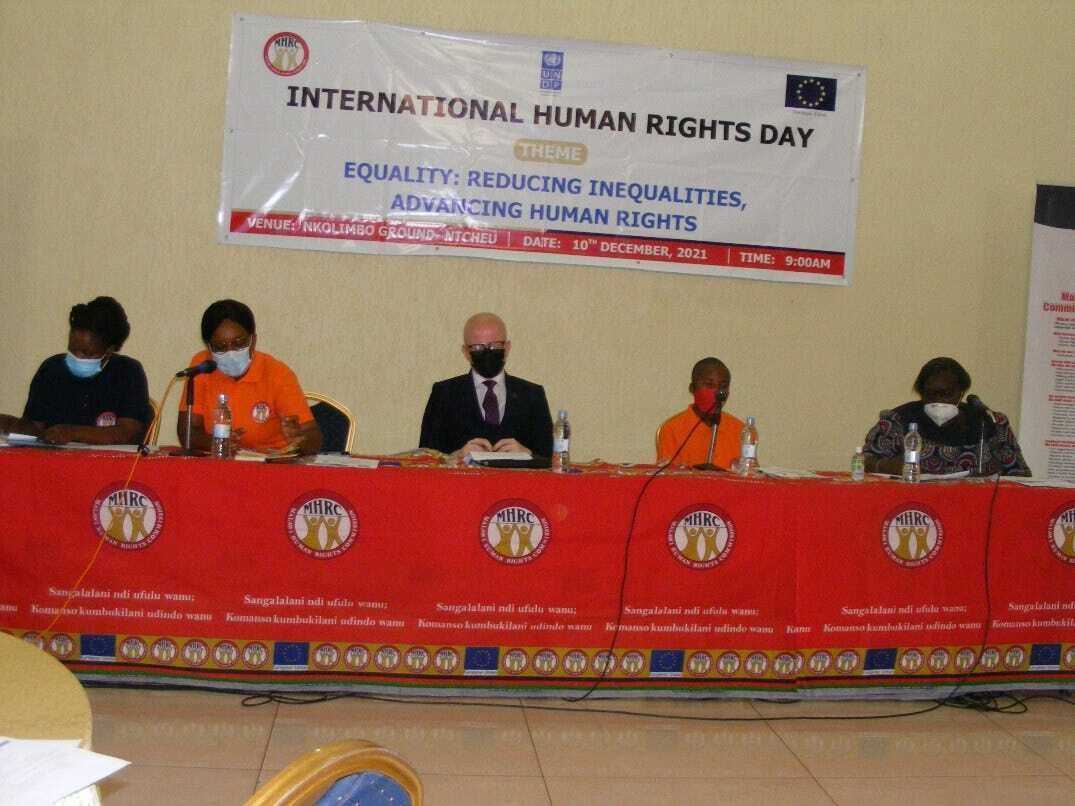
MALAWI: The Malawi Human Rights Commission (MHRC) says it is on the move to address issues of inequalities affecting women, children, and people with disabilities in various places including in the workplaces and academic institutions in the country.
Speaking on the sidelines of the panel discussion program which was organized by MHRC at Crossroads Hotel on Wednesday in Lilongwe, MHRC Commissioner, Boniface Massah, said that there is a big problem of inequality in the country.
“There is indeed a big problem of inequality in Malawi and the good examples being at the workplace, educational institutions and even in communities. For instance, in some companies, you would see that both men and women are doing the same job but you will notice that women are being paid less than men or you would see that women are given more tasks than men just because they are women and this is pathetic,” Massah said.
He added that MHRC is currently monitoring the inequalities in different institutions and communities and is working together with various stakeholders to address the challenge of inequality in the country.
“As MHRC what we are recommending is to make sure that we provide the right information to all Malawians regarding inequalities, we want Malawians to have information on the laws that are addressing the inequalities whether in gender and disability,” he said.
“We are currently monitoring the inequalities and we are engaging duty bearers and organizations to make sure that state obligations are implemented in terms of adequate measures and efforts to end the inequalities.”
Malawi Human Rights Resource Centre Director, Emma Kaliya, said that there is also a need for corroborative efforts if the issue of inequality has to be addressed in the country.
“All of us we have to work together to make sure that these inequalities should not continue, we are very aware that things are not well out there and if we leave it to one sector such as the public sector things will not work. In this case, Civil Society Organizations (CSOs), government, development partners as well as the general population have the role to play if we are to deal with this issue of inequality in our country,” Kaliya said.